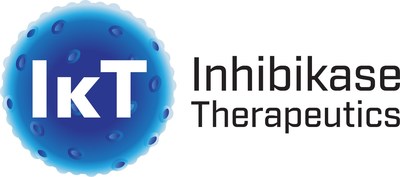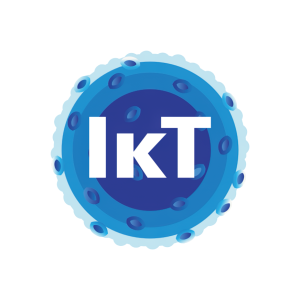Inhibikase Therapeutics Initiates Development of Second Generation c-Abl inhibitors and names IkT-148009 as risvodetinib
- Company to assess new molecules arising from internal discovery and other companies to enhance suppression of neurodegeneration through c-Abl inhibition –
- Selected non-proprietary name risvodetinib for IkT-148009 evocative of 'reversal' -
"The selectivity of IkT-148009 for the non-receptor Abelson tyrosine kinases emerged from our discovery efforts leveraging our RAMPTM medicinal chemistry approach. The selectivity of IkT-148009 predicted a favorable safety profile and a favorable safety profile has been seen thus far in the clinic," commented Dr. Milton Werner, President and CEO of Inhibikase. "The basis for this selectivity was visualized from the x-ray crystal structure of IkT-148009 bound to its targets. These structures have led to the design of second generation molecules now in pre-clinical development. We believe these new designs could further improve brain delivery and c-Abl inhibition in the central nervous system. In addition, we are evaluating early stage molecules from other companies that inhibit c-Abl without binding to the enzyme active site. Such novel inhibitors, alone or in combination with active site inhibitors like IkT-148009, may be an improved approach to suppress neurodegeneration arising from c-Abl activation inside and outside of the brain."
About IkT-148009 and Neurodegeneration
c-Abl activation in response to alpha-synuclein invasion into neurons is an early step in the course of Parkinson's disease. IkT-148009 is a selective c-Abl kinase inhibitor that uniquely inhibits c-Abl and the closely related Abl2/Arg enzyme, with limited inhibition of other members of the Abl-kinase family, namely c-Kit or PDGFRa/b. IkT-148009 has nearly 25x the potency of the anticancer agent imatinib against c-Abl in enzyme inhibition assays. IkT-148009 is a competitive inhibitor of c-Abl, meaning IkT-148009 binds more tightly to the enzyme active site than its normal substrates and prevents the enzyme active site from being occupied by its normal binding targets inside neurons. By inhibiting c-Abl in neurons where invading alpha-synuclein activated the enzyme, IkT-148009 can suppress progression of neurodegeneration in animal models of Parkinson's disease. An alternative approach to inhibition is to lock the enzyme structure into an inactive state. Such inhibitors hold c-Abl in a shape that precludes the enzyme active site from being accessible to bind its normal targets in the first place. Alone or in combination, this alternative inhibitor strategy might hold c-Abl in a locked, inactive state in neurons that have not yet been infiltrated by alpha-synuclein, while IkT-148009 could block activated c-Abl in neurons that have already been invaded by alpha-synuclein. These two approaches, separately or in combination, could potentially improve the ability to block spread of disease and more efficiently lead to clearance of the underlying pathology associated with Parkinson's disease through processes reactivated in the presence of c-Abl inhibition.
About risvodetinib
Following submission of a request for an International Non-proprietary Name (INN) to the World Health Organization ('WHO'), the WHO published the non-proprietary name of risvodetinib as the official name of IkT-148009. Following a 12 month response period, we have further submitted this designation for IkT-148009 to the American Medical Association's USAN non-proprietary naming program and requested that risvodetinib be used to refer to IKT-148009 free base and risvodetinib succinate to refer to the salt form of IkT-148009. Going forward, we will refer to IkT-148009 as risvodetinib or use the nickname 'risvo'.
About Parkinson's Disease
Parkinson's disease (PD) is the second most prevalent neurodegenerative disorder, affecting up to 1,200,000 persons in
About Inhibikase (www.inhibikase.com)
Inhibikase Therapeutics, Inc. (Nasdaq: IKT) is a clinical-stage pharmaceutical company developing therapeutics for Parkinson's disease and related disorders. Inhibikase's multi-therapeutic pipeline focuses on neurodegeneration and its lead program IkT-148009, an Abelson Tyrosine Kinase (c-Abl) inhibitor, targets the treatment of Parkinson's disease inside and outside the brain as well as other diseases that arise from Ableson Tyrosine Kinases. Its multi-therapeutic pipeline is pursuing Parkinson's-related disorders of the brain and GI tract, orphan indications related to Parkinson's disease such as Multiple System Atrophy, and drug delivery technologies for kinase inhibitors such as IkT-001Pro, a prodrug of the anticancer agent imatinib mesylate that the Company believes will provide a better patient experience with fewer on-dosing side-effects. The Company's RAMP™ medicinal chemistry program has identified a number of follow-on compounds to IkT-148009 to be potentially applied to other cognitive and motor function diseases of the brain. Inhibikase is headquartered in
Social Media Disclaimer
Investors and others should note that we announce material financial information to our investors using our investor relations website, press releases, SEC filings and public conference calls and webcasts. The company intends to also use Twitter, Facebook, LinkedIn and YouTube as a means of disclosing information about the company, its services and other matters and for complying with its disclosure obligations under Regulation FD.
Forward-Looking Statements
This press release contains "forward-looking statements" within the meaning of the Private Securities Litigation Reform Act of 1995. Forward-looking terminology such as "believes," "expects," "may," "will," "should," "anticipates," "plans," or similar expressions or the negative of these terms and similar expressions are intended to identify forward-looking statements. These forward-looking statements are based on Inhibikase's current expectations and assumptions. Such statements are subject to certain risks and uncertainties, which could cause Inhibikase's actual results to differ materially from those anticipated by the forward-looking statements. Important factors that could cause actual results to differ materially from those in the forward-looking statements include our ability to successfully conduct clinical trials and that results in our animal studies may not be replicated in humans, as well as such other factors that are included in our periodic reports on Form 10-K and Form 10-Q that we file with the
Contacts:
Company Contact:
Milton H. Werner, PhD
President & CEO
678-392-3419
info@inhibikase.com
Investor Relations:
Alex Lobo
SternIR, Inc.
alex.lobo@sternir.com
![]() View original content to download multimedia:https://www.prnewswire.com/news-releases/inhibikase-therapeutics-initiates-development-of-second-generation-c-abl-inhibitors-and-names-ikt-148009-as-risvodetinib-301904847.html
View original content to download multimedia:https://www.prnewswire.com/news-releases/inhibikase-therapeutics-initiates-development-of-second-generation-c-abl-inhibitors-and-names-ikt-148009-as-risvodetinib-301904847.html
SOURCE Inhibikase Therapeutics, Inc.








